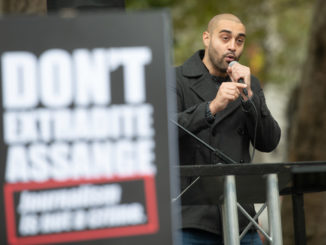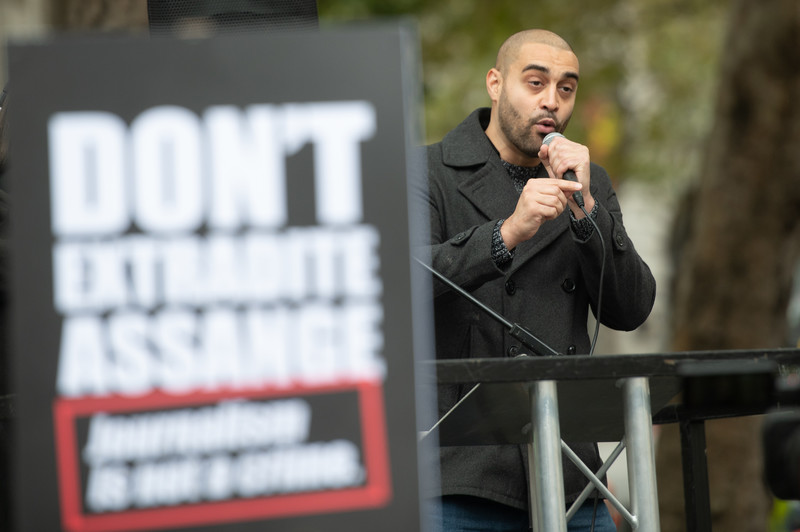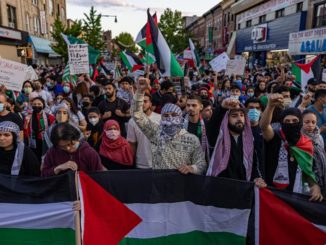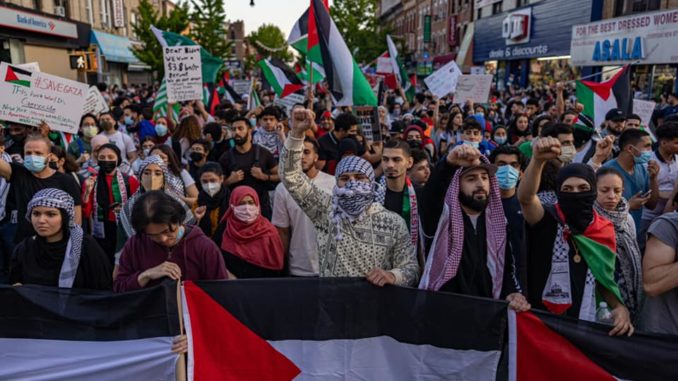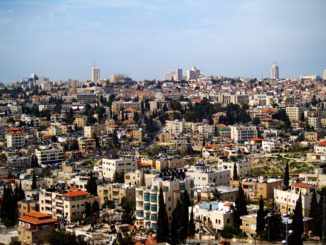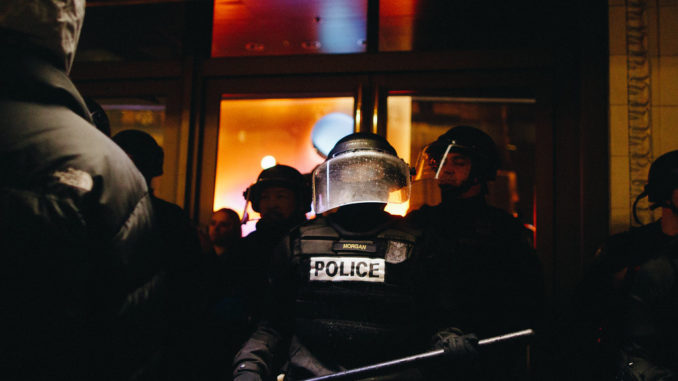
The world is shocked by the image of an 11-story residential building in Gaza collapsing because of a bomb dropped by the Israeli Defense Force, one of the most advanced armies in the world thanks to U.S. support. But in the United States, Andrew Yang, former presidential candidate and now candidate for mayor of New York City, proudly proclaims he stands with the “heroic people of Israel” who are under attack from the vicious, occupied Palestinians, who have no army, no rights and no state.
But as politically and morally contradictory as Yang’s sentiments might appear for many, the alternative world of Western liberalism has a different standard. In that world, liberals claim that all are equal with inalienable rights. But in practice, some lives are more equal and more valuable than others.
In the liberal world, Trump is condemned for attempting to reject the results of the election and indicating he might not leave office at the end of his term. But as soon as Biden occupied the White House, one of his first foreign policy decisions was to give the U.S.-imposed Haitian president, Jovenel Moïse, a green light to ignore the demands of the Haitian people and the end of his term in February. He remains in office.
In the liberal world, the United States that has backed every vicious right-wing dictator in the world since the Second World War, orchestrates coups, murders foreign leaders, attacks nations fighting for independence in places like Vietnam, trains torturers, brandishes nuclear bombs, has the longest-held political prisoners on the planet, is number one in global arms sales, imprisons more people than any other nation in the world, has supported apartheid South Africa and is supporting apartheid Israel—while championing human rights!
In the liberal world, the United States can openly train, fund, and back opposition parties and even determine who the leader of a nation should be, but react with moral outrage when supposedly Russian-connected entities buy $100,000 worth of Facebook ads commenting on “internal” political subjects related to the 2016 election.
In the liberal world, Democrats build on racist anti-China sentiments and the identification of China as a national threat, and then pretend they had nothing to do with the wave of anti-Asian racism and violence.
In the liberal world, liberals are morally superior and defend Black life as long as those lives are not in Haiti, Libya, Colombia, Venezuela, Brazil, all of Africa, and in the jails and prisons of the United States.
In the liberal world, you can—with a straight face—condemn the retaliatory rockets from Gaza, the burning of a police station in Minneapolis, attacks on property owned by corporations in oppressed and exploited communities, attacks on school children fighting back against police in Baltimore, and attacks on North Koreans arming themselves against a crazed, violent state that has already demonstrated—as it did with Libya—what it would do to a state that disarmed in the face of U.S. and European aggression.
And in the liberal world, Netanyahu is a democrat, the Palestinians are aggressors and Black workers did not die unnecessarily because the United States dismantled its already underdeveloped public health system.
What all of this is teaching the colonized world, together with the death and violence in Colombia, Haiti, Palestine and the rest of the colonized world, is that even though we know the Pan-European project is moribund, the colonial-capitalist West is prepared to sacrifice everything and everyone in order to maintain its global dominance, even if it means destroying the planet and everyone on it.
That is why Biden labels himself an “Atlanticist”—shorthand for a white supremacist. His task is to convince the European allies it is far better to work together than to allow themselves to be divided against the “barbarians” inside and at the doors of Europe and the United States.
The managers of the colonial-capitalist world understand the terms of struggle, and so should we. It must be clear to us that for the survival of collective humanity and the planet, we cannot allow uncontested power to remain in the hands of the global 1 percent. The painful truth for some is if global humanity is to live, the Pan-European white supremacist colonial-capitalist project must die.
This article was originally published in Black Agenda Report.
Ajamu Baraka is the national organizer of the Black Alliance for Peace and was the 2016 candidate for vice president on the Green Party ticket. Baraka serves on the Executive Committee of the U.S. Peace Council and leadership body of the United National Antiwar Coalition (UNAC). He is an editor and contributing columnist for the Black Agenda Report and contributing columnist for Counterpunch. He was awarded the U.S. Peace Memorial 2019 Peace Prize and the Serena Shirm award for uncompromised integrity in journalism.

